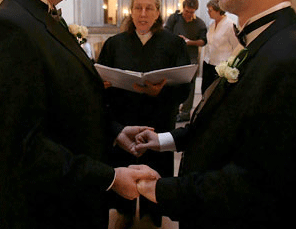
TAIPEI, Taiwan: – Citizens of the Caribbean nation of St. Vincent and the Grenadines (SVG) will later this year vote to adopt a new constitution that includes a clause that will make same-sex marriage unconstitutional.
Chapter 11 of the SVG Constitution Act, 2009 sets out the 24 “Guiding Principles of State Policy”.
Clause 17(1) says that the State acknowledges the family as the natural basic group unit of society and “accords the family recognition, respect, protection and support; asserting that men and women of the age of civil legal and societal responsibility have the right to marry and establish a family”.
The proposed constitution further say in Clause 17(2), “The State shall protect marriage, which shall be a legal union only between a person who is biologically male at birth and a person who is biologically female at birth.”
Former attorney general Parnel Campbell, Q.C. is the Chairman of the Constitutional Review Steering Committee.
“The basis of that provision in the Constitution is overwhelming public sentiment on the issue of same-sex marriages, as expressed during the exhaustive consultations we have had with the people,” he told I Witness-News.
He said the commission estimated that “there would be at least about 95% majority opinion against same sex marriages. In [the commission’s] view no further justification is required,” he wrote in an email response to questions.
But lawyer Paula David has criticized her country for the move to make same-sex marriage unconstitutional.
“…we are so proud of our homophobia that we want to enshrine it in our Constitution,” she wrote in a document circulated on Facebook.
David said the “would be framers of a Constitution” wished to keep SVG “permanently mired in the state of being an intolerant, unkind, backwater”.
David, who has a “not insignificant divorce practice”, said SVG’s divorce rate is “staggering” and adultery is a major threat to marriage in the country.
“The noble framers of our Constitution bill have not seen it fit to attempt to curb the behaviour of the adulterers in our society. Instead, they’ve chosen to attack the gay community,” she said.
She suggested that “a significant number of gays in this society are men married to women” and that “this phenomenon exists because ‘stigma and discrimination’ force these men to seek the cover of a socially acceptable domestic arrangement”.
“… I have a nagging suspicion that the inclusion of this clause was motivated by nothing more significant than empty posturing; that it is no more than infantile attention seeking behaviour,” David said.
“…how can we, the sons and daughters of slaves, bring ourselves to discriminate against any group of persons because of something they cannot help…” she added.
David said that homosexuals have no more control over their sexuality than over their race and that “in the grand scheme of things their sexuality is utterly insignificant”.
At the time of publishing this story, both the Office of the Prime Minister and the public relations officer of the opposition New Democratic Party (NDP) had yet to respond to a request for comments.
However, both the government and opposition have said that they do not support decriminalising homosexuality in SVG.
One social commentator in SVG asked I Witness-News for anonymity, citing “the emotive nature of the issue of homosexuality”.
“What I do know and can say is that morality can never be legislated. Any attempts to do so as the section [on] same sex marriage does, is really not noble, but essentially political pandering. Why not outlaw adultery; it is one of the sins for which God destroyed Sodom,” the commentator wrote in an email.
Vincentians are expected to vote on the new constitution sometime after October, when the nation celebrates its 30th anniversary of independence from Britain.





